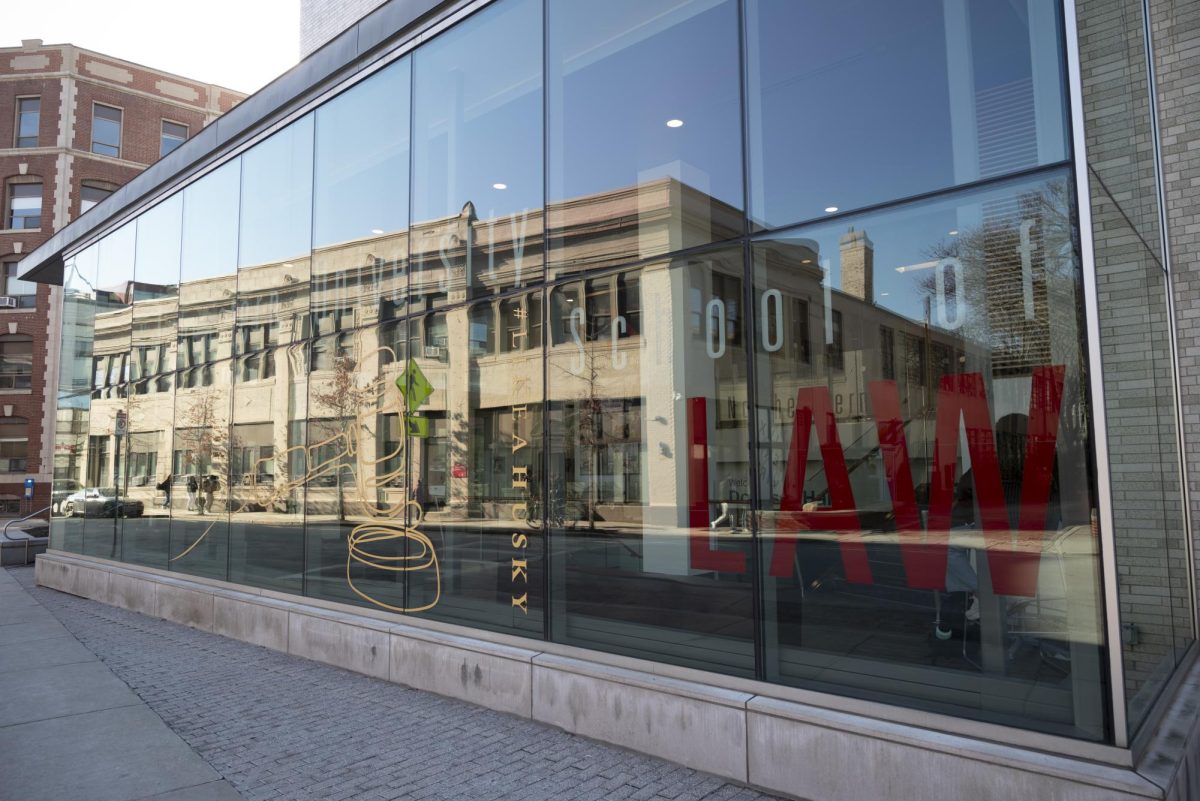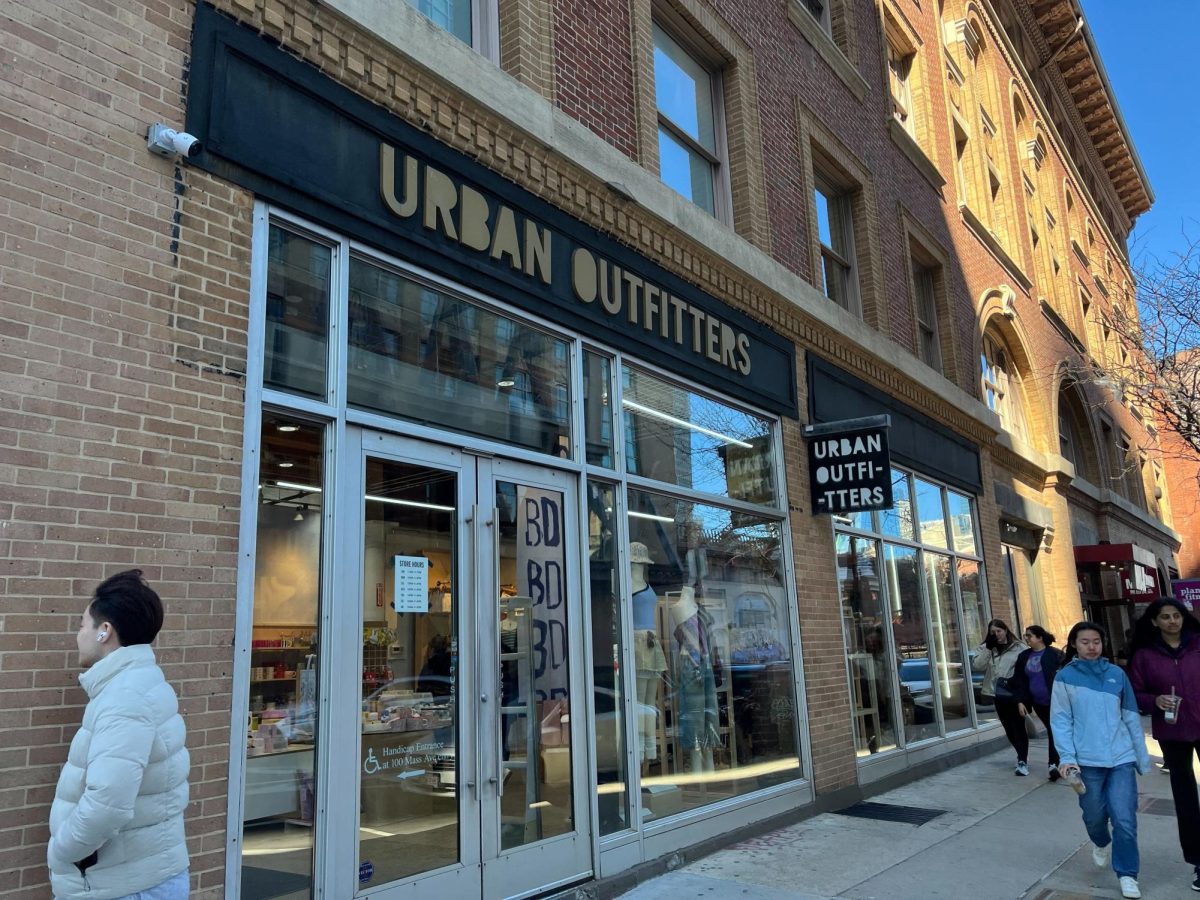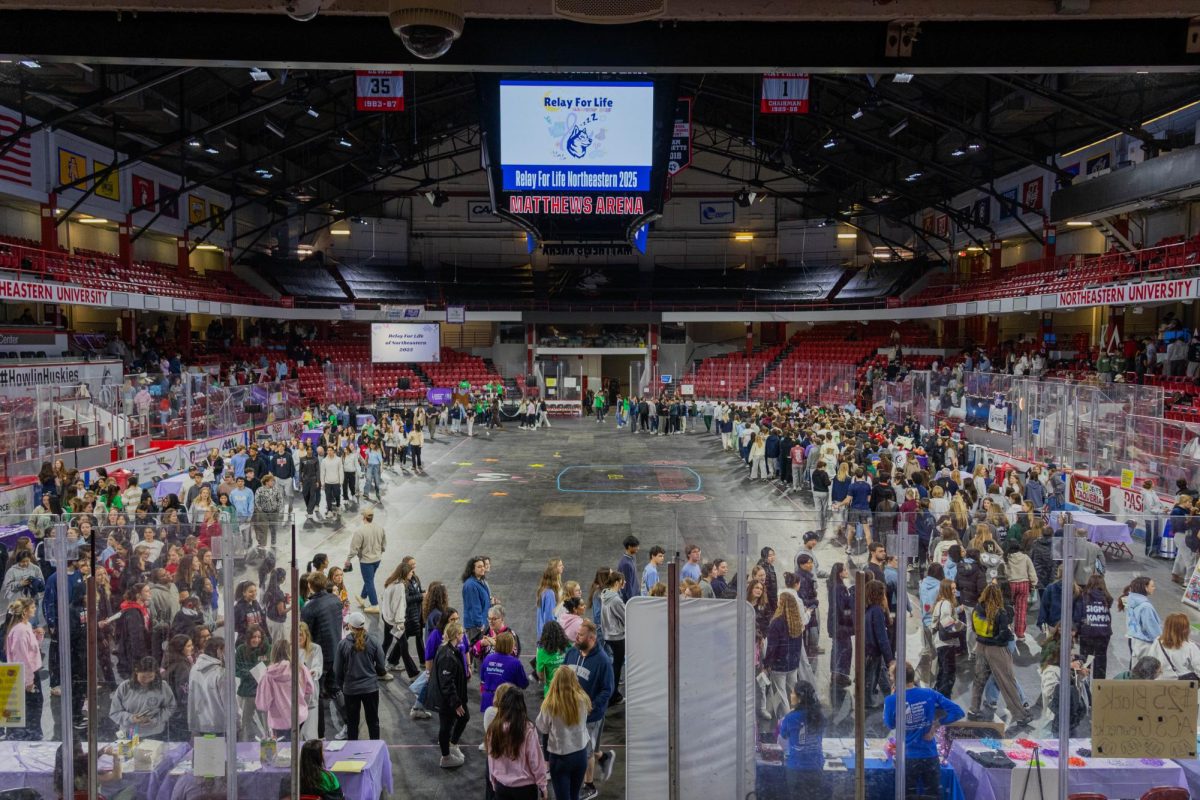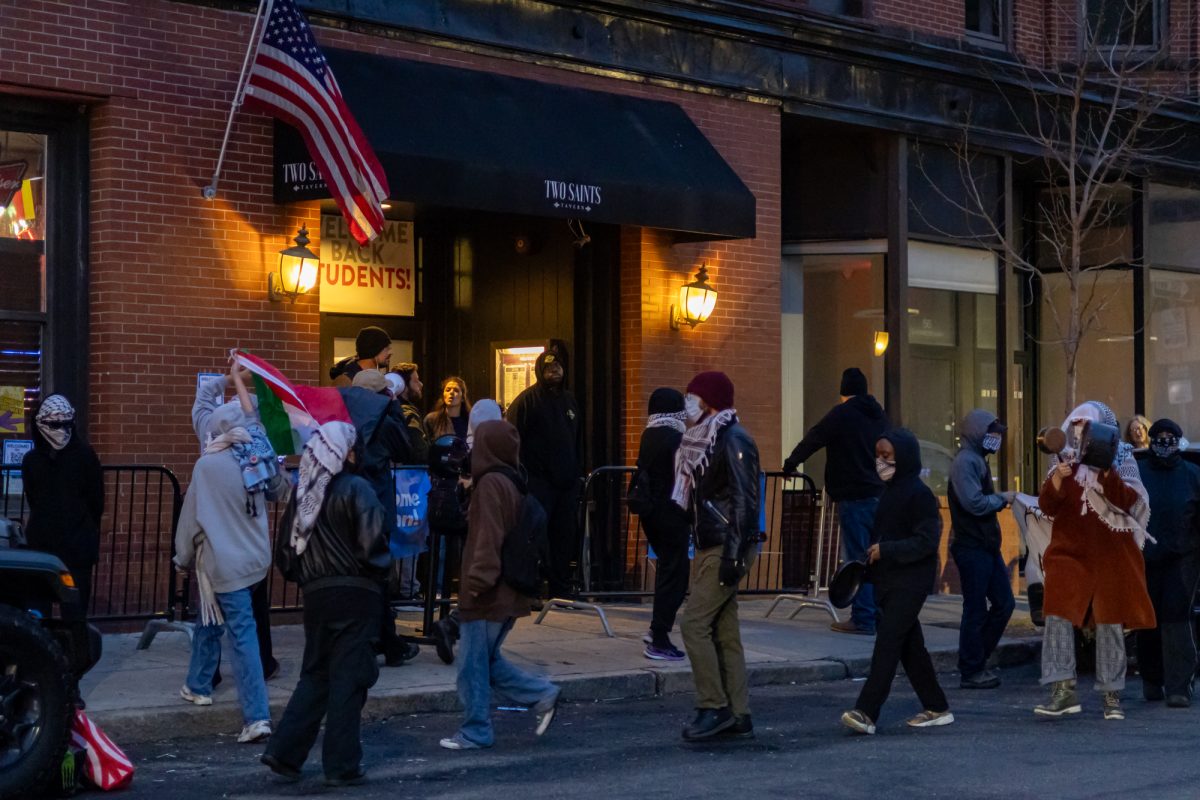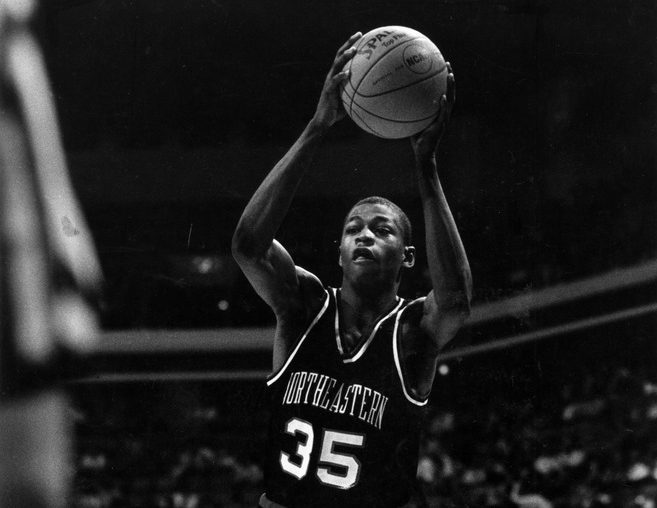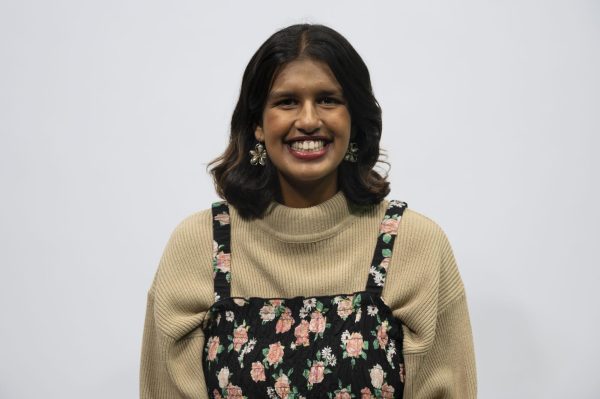Let’s talk about sex, baby. More specifically, Northeastern’s history of bold sexual discourse and its current lack of this same liberation.
Twenty years ago, Northeastern had a dedicated “Sex Week” during its spring semester, and The Northeastern News, now The Huntington News, devoted a section to publishing students’ anonymous sexual experiences. Today, students describe the limited number of times sex comes up in a conversation. Open sex-based dialogue at Northeastern seems to be a thing of the past, and Sex Week’s impact today is practically nonexistent.
While the specific dates are unclear, the first mention of Sex Week — a seven-day event organized by the Resident Student Association — appeared in 2007 and ended around 2013. Sex Week aimed to promote sexual awareness throughout campus, and it featured events ranging from informative lectures on sexual abuse and sex trafficking, to more explicit sessions on how to give and achieve an orgasm and lap dancing lessons.
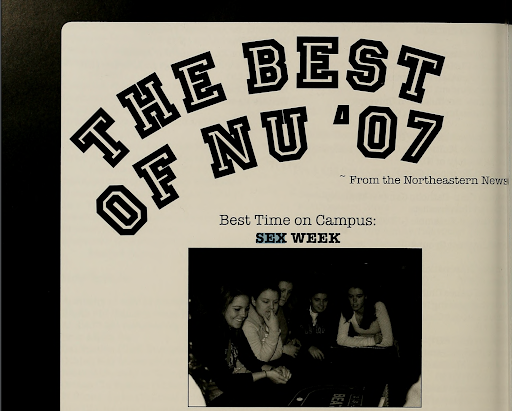
There were games like “condom casino,” where students played casino games with condoms instead of chips in the Curry Student Center, and guest speakers gave speeches on sex-related topics. American fashion designer Christian Siriano, notable for his debut on “Project Runway,” and comedian Lisa Lampanelli, were among the honorary speakers welcomed to campus.
The Cauldron, Northeastern’s yearbook-style publication documenting student activities, campus culture and major events, named Sex Week the “Best Time on Campus” in its 2007 issue.
Perhaps the most anticipated aspect of Sex Week was the release of “Stripped,” a magazine distributed around campus featuring articles about blow jobs, sex horoscopes, relationship advice and nude photographs of students in the style of that year’s Sex Week theme.
Stephanie Pratti, who graduated from Northeastern in 2012, was one of the many students displayed partially nude in one spread of “Stripped.” She said she found the experience to be “a really great time.”
“There was some sort of application process, and I think upperclassmen usually got preference especially if you hadn’t been photographed before,” Pratti said in a recent interview with The News. “You let them know your level of clothing comfort in the application or on-site. In all the pictures, you end up covered. There’s nothing you couldn’t put on Instagram, I guess.”
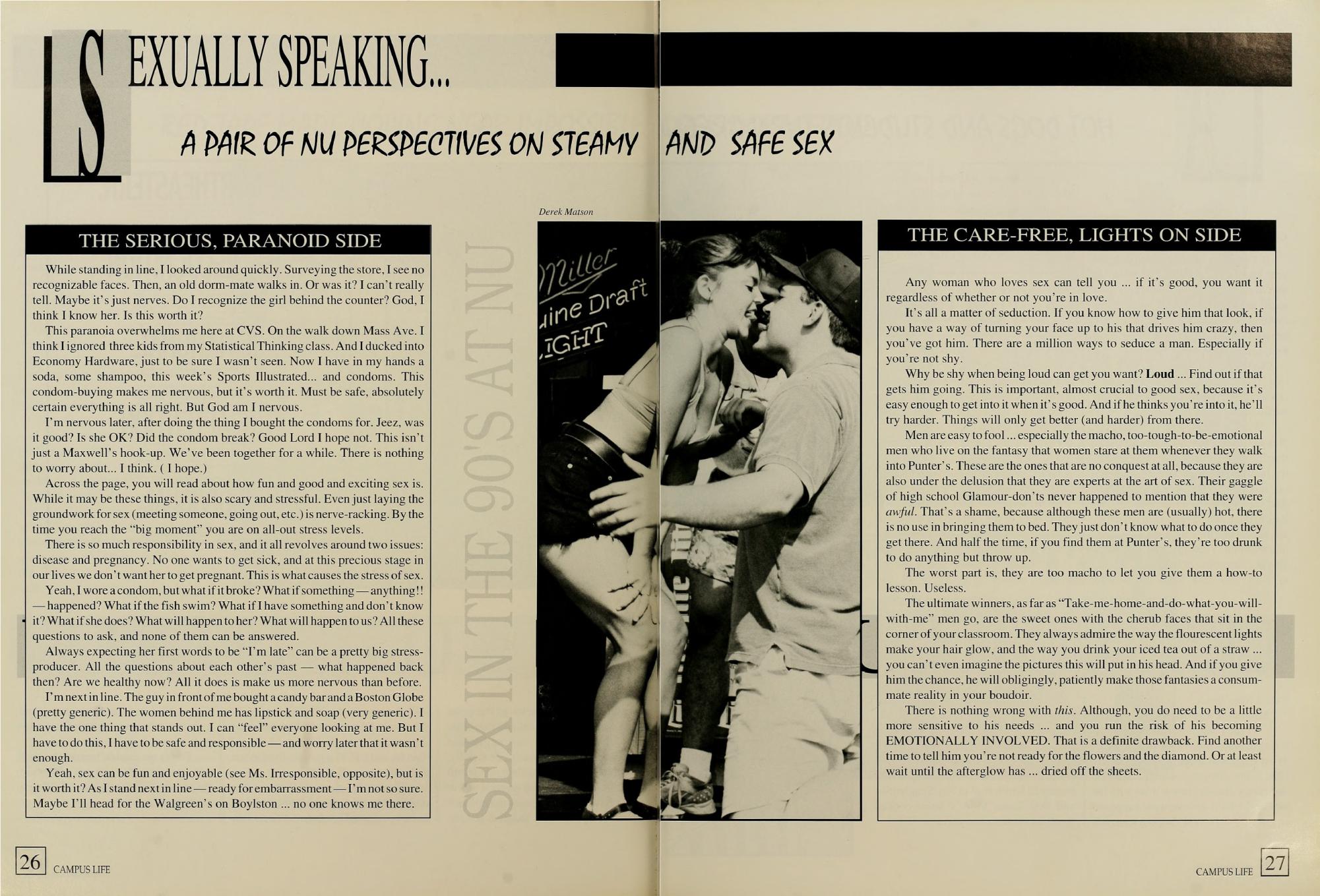
Pratti said the photographers would be careful in their placement of props or a specific positioning of the student model to ensure no breasts or genitals were visible. Pratti, who was featured in the issue themed “Road Trip” on the Arizona page, earned a spot next to articles detailing one student’s experience having a gynecologist as a mother and an op-ed on the pains of having a long-distance relationship.
“It was a really great time and space for people to learn about sex, like the physical act of sex, but also sexuality, protection, where to get tested,” Pratti said. “People come to school from all different places, all different backgrounds, all different walks of life.”
Pratti recalled that rather than encouraging hook-up culture on campus, Sex Week helped broadcast resources for safe sex.
Currently, students who live in on-campus residence halls can get condoms, oral dams and lubricant sent to mail services for free, with the ability to order up to six times during the semester via Frisky Husky. Those living off campus may pick up free condoms in the lobby of University Health and Counseling Services in the Forsyth Building or through the Wellness Vending Machine in Marino Recreation Center. However, the concept of having a “condom bowl” in front of a Resident Assistant’s door, something that Pratti said was common practice during her time at Northeastern, is now relatively unheard of.
“We’re here to celebrate sex,” Pratti said of Sex Week. “You either love it or you hate it. Or you’re interested in it, or you’re curious about it, or you have no idea about it and you just want a safe space to figure it out.”
Sex Week — which today is organized annually by Northeastern University Sexual Health Advocacy, Resources, and Education club and Northeastern’s Office of Prevention and Education — wasn’t the only way that sex infiltrated the Northeastern discourse.
First published sometime in 2005, the “Sex Section” published these “SEXcapades,” even in the face of backlash. Several students wrote letters to the editor in which they called these sexual posts “sleazy” and “utterly offensive.” In response to these letters, other students wrote to The Northeastern News detailing how these columns “are doing no harm.”
Northeastern is not the first university to have published sexual material. In fact, it’s not even the first university in the Boston area to do so.
In 2013, inspired by Brown University’s own “Sex Week,” Tufts University held a Sex Fair which included a lecture about oral sex and advocated for creating a Sex Week of their own. In 2004, Harvard University students began publishing H Bomb, a magazine dedicated to articles and art about sex and nude photographs.
According to Fifteen Minutes, the magazine of the Harvard Crimson, the co-creators of H Bomb “wanted the magazine to reignite the conversation on sex without exploiting women” and were inspired by several other university sex-based publications, like Vassar College’s Squirm Magazine — which still runs today — or the Boston University’s Boink Magazine, which referred to itself as “the college guide to carnal knowledge.”
But mentions of sex at Northeastern preceded the 2000s. A 1994 issue of The Cauldron includes a two-page article about a woman’s nerve-wracking experience buying condoms at a nearby CVS and which men to choose for a great sexual experience. A 1980 edition of Excelsior, Northeastern’s Hus-skiers and Outing Club, or NUHOC, publication, included a short blurb declaring that “NUHOC’ers are obsessed with sex thoughts,” signed cheekily, “E.E. Cummings.”
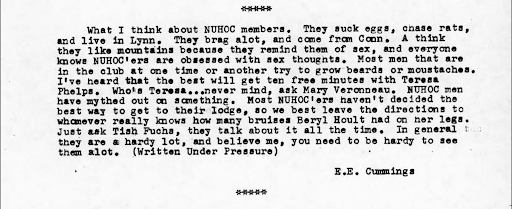
The open dialogue around sex habits at Northeastern didn’t arrive with the new millennium but instead seeped from an older generation into the next.
But alarmingly, this dialogue appears to have stopped with Gen Z.
“I don’t feel like there’s a lot of talk about [sex],” said Kendall Gross, a first-year electrical and computer engineering major.
Gross isn’t alone in this feeling. First-year psychology major Claire Fiedler finds she doesn’t overhear conversations about sex in class, in the dining halls or while walking around campus.
“I’ve definitely heard people talk about it, but it’s often referencing songs and stuff more than the actual act of it,” she said.
In its December 2018 issue, The Atlantic published an article calling the lack of sexual experiences teens and young adults are having a “sex recession.” Reporter Kate Julian interviewed Alexandra Solomon, a psychology professor at Northwestern University, who found that her students were choosing “between casual sex and no sex” largely because the idea of “relationship sex” seemed “unattainable.”
Solomon explained how she thought students “have absorbed the idea that love is secondary to academic and professional success,” leading young people to the conclusion that a person’s first and foremost priority should be having a productive, money-making career.
In spring 2024, the National College Health Assessment published that out of 103,639 college respondents, 38% reported never having oral sex, 41.1% never had vaginal intercourse and 82.5% never had anal intercourse. In comparison, in spring 2012, when Sex Week still occurred at Northeastern, out of 90,066 respondents, 27.3% reported never having oral sex, 30.1% never had vaginal intercourse and 76% had never had anal intercourse.
While these numbers suggest that college students are having less sex today than they were 15 years ago, other studies have shown that people are still talking about sex, even if fewer people report having it. A study published in 2020 in the Journal of Social and Personal Relationships asked 96 female-identifying college students to keep a diary for seven days chronicling every mention of sex, either digitally or in real life.
An analysis of the 1,211 records kept found that women talked about sex an average of 13 times per week, 63% of these times being face-to-face with friends. So, college-aged women are still talking about sex, but these conversations are taking place behind closed doors, between close friends or roommates.
Kaylyn Harring, a first-year psychology major, believes that conversations about sex depend on the person.
“I have friends who are more open about it, and we talk about it more just because we know each other a little bit better,” Harring said. “I feel like it just differs with different people.”
Marley McKinsey, a second-year pharmaceutical sciences and international relations double major, finds that conversation on sex dwindles as people age.
“I think the older you get, grade-wise, the less I’ve heard people talk about sex,” he said. “I definitely heard it come up more [in my] first year than I do now and with my older friends.”
Whether current Northeastern students are still finding it as easy to have sexual experiences as they did in the late 2000s and early 2010s, the more pressing question is how this open sex-based dialogue faded out as the next generation of Huskies began their college careers.
Even “Sex and the City” writer Candace Bushnell has come to question the existence of sex in her 2019 novel, “Is There Still Sex in the City?” At Northeastern, students who spoke to The News wonder: Is there still sex on campus? And more so, they theorize about where the campus discourse around sex went.
Gross has an idea, and it involves the current technological-social overlap that leads to a general lack of conversation on campus.
“We all kind of walk around with our headphones in. Even just general day-to-day interactions are a lot different — I feel like it’s harder to find an established connection,” Gross said. “I don’t necessarily think we’re prudish, but I do feel like the times have just changed about how we talk about sex.”
Editor’s note: This story was updated Feb. 26 at 12:30 p.m. to include Northeastern University Sexual Health Advocacy, Resources, and Education’s 2025 “Sex and Relationship” week.




